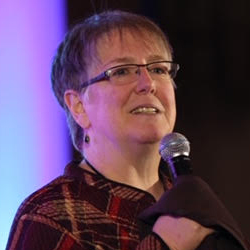
“It’s like comparing apples to oranges,” is a common phrase uttered in frustration by those in the midst of an RFP (request for proposal) evaluation. Rob Robinson of ComplexDiscovery pulls back the curtain on what our community is seeing in pricing models, per GBs, per docs and alternative fees.
Project Management and Collection pricing are the breakout stars of per hour pricing, and predictive coding wins with alternative fee structures in this season’s eDiscovery Pricing Survey stewarded by ComplexDiscovery. The semi-annual survey, conducted six times over the last three years, provides a snapshot of eDiscovery common tasks and phases, inquiring about financial arrangements for eDiscovery engagements including per GB, per hour, and alternative fees.
EDRM thanks our community for participating in the survey. We are proud to highlight and promote ComplexDiscovery’s consistent periodic surveys to take a non-scientific view into community attitudes, practices and pricing over time, they are truly a gift to the community.
Kaylee Walstad, Chief Strategy Officer for EDRM
“EDRM thanks our community for participating in the survey. We are proud to highlight and promote ComplexDiscovery’s consistent periodic surveys to take a non-scientific view into community attitudes, practices and pricing over time, they are truly a gift to the community,” said Kaylee Walstad, Chief Strategy Officer for EDRM.
As the US legal economy emerges from the pandemic, it is clear that some capabilities are in higher demand than they used to be (if pricing is a function of supply and demand) and that alternative billing models are a definitive part of the mix.
The eDiscovery Pricing Survey is designed to provide insight into industry pricing through the lens of 12 pricing questions answered by legal, business, and information technology professionals operating in the eDiscovery ecosystem.
Rob Robinson, CompexDiscovery
The eDiscovery Pricing Survey is designed to provide insight into industry pricing through the lens of 12 pricing questions answered by legal, business, and information technology professionals operating in the eDiscovery ecosystem.
Collection
Hourly costs for collection are higher and the per device costs are lower, indicating a shortage of personnel, and opportunities for economies of scale when collecting multiple devices. This category has the smallest reported number of alternative fee arrangements. Analysis and expert witness support is generally charged at $300-550, one of the areas to remain fairly constant, if not increasing since the year 2000.
Processing
Less than 10% of respondents see processing charges applied to incoming data based on volume over $75 per GB, with the balance less than that, and fully 25% charged as an alternative fee. Anecdotally, we have been told that some do not charge at all for incoming data.
Those charging at the completion of processing (generally considered to be de-NISTING, numbering, hashing, deduplication, threading, search terms) are more likely to offer alternative to per GB pricing, with the majority of per GB clients seeing between $75-150 on a smaller volume of data.
Hosting
Hosting charges, with and without analytics, come in between 10-25/per GB/month, with alternative pricing models almost double for those including analytics.
User license fees
User license fees are hovering around $100, with a smattering including them in alternative fee arrangements. With security concerns increasing, and the incentive for reuse of logins, we will be interested to see if alternative fees in this area increase during the next survey.
Project Management Fees
Formerly bundled into and hidden by processing, hosting and production per GB charges, the frothy job market for project managers can be explained by the increase in $200 plus per hour PMs, and holding steady at the $150-200 ($300-400k in 40 hour/week billings), with less than 10% now bundled into an alternative fee.
Predictive Coding v Manual Review
Alternative fees cover 40% of the market for conducting a predictive coding exercise, with 10% or less for those charging on a per hour or per document review. While 40% report paying over $40 per hour, another 40% are paying between $25-40 an hour for review. The per page charge is not visible to the majority of respondents, with barely 20% of respondents reporting over $1 per document, a significant decrease over the last decade when $1 was applied to a per page metric.
Read the entire survey, complete with charts and graphs, here.


